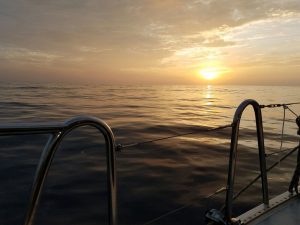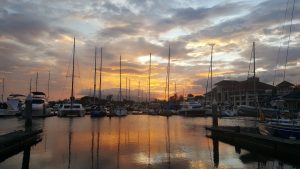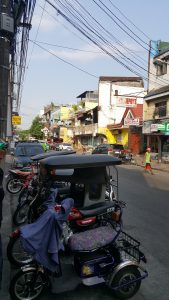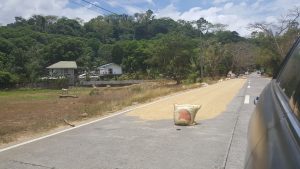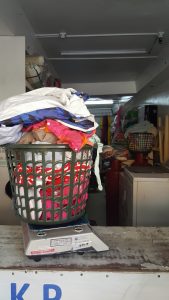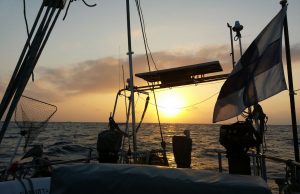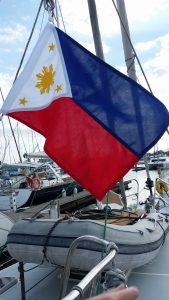Lil Sis is enjoying her school camp in mainland China, and between her drop off and pick up, part of the family are on a shopping spree in Hong Kong. It is not the kind of activity that one imagines when thinking of Hong Kong and shopping though; they are running around the city’s alleys buying (yet more) spare parts for the boat! It can be a challenge to find technical tools and items in Hong Kong. There are no large DIY or hardware stores, and instead you find that for each item, there is one (back)street where everyone sells that item but almost nothing else. So when you have 20 items to buy, it requires significant local knowledge to find everything, and even then it can be very time-consuming. Nevertheless, it seems infinitely easier to buy spares and other small items from Hong Kong than from the Philippines.
The boat has been around Subic Bay for almost three weeks, and we are starting to get rather itchy feet. The weather analysis has started again in earnest, and considering our success finding bad weather en route to the Philippines, we are taking it very seriously. However, the challenge with sailing is that waiting for the “perfect” weather window may mean not getting out at all, and even perfect windows are not guarantees of good sailing conditions (as we have just learnt the hard way).
All small repairs on the boat have been made, and we have acquired a sea anchor as a replacement for our trusted series drogue which was unfortunately lost when we tried to retrieve it in rather large seas on the trip to the Philippines. Drogues are notoriously difficult to retrieve, and we probably should have waited for calm seas before even attempting to retrieve ours, but by the time the weather started to show signs of easing, we were so ready to get on our way – not to mention ready to exit the hell that is being tied to a drogue in big seas! – that we just couldn’t resist the urge to get it off.
We are now also starting to go through our departure checklists. What shall we eat during our next passage? How much water do we need to carry on board? We have a water-maker, but it is still in a “pickled” (i.e. long-term storage) state, and we need to get it going once underway (it is not a good idea to un-pickle a water-maker in dirty marina water). We need to get fuel, and the propeller needs to be scrubbed once more to remove any sign of barnacles which grow with amazing speed in these tropical waters. We need to handle administrative tasks in the current marina, and need to inform coming ports of our arrival. Are we comfortable that we have paper charts of the right scale for our next leg and do we need further pilot books for port arrival? Are seacocks in a good state and do our bilge pumps work properly? What about fire and gas alarms, and our emergency devices such as EPIRBs and PLBs? Are all the communications equipment in good working order, likewise our chart plotter and autopilot? Do we have enough gas to cook food on the next leg? The list goes on and on.
Whereas the stress factor is high, the excitement over what lies ahead grows exponentially. We hope the waiting game will soon be over and our bow will once again be pointed towards news horizons.
